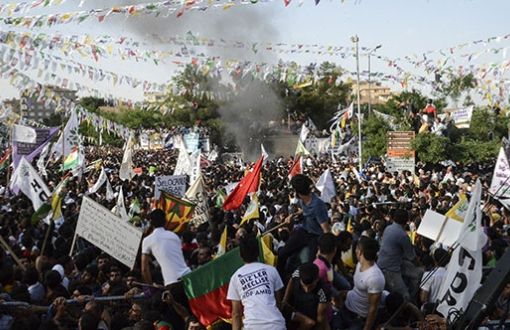ISIS Bombing in Diyarbakır: Court Announces Justified Decision

Click to read the article in Turkish
Ankara 2nd Heavy Penal Court today (April 27) announced its justified decision on a bomb attack in the Kurdish-majority Diyarbakır city. The attack was carried out on June 5, 2015, two days before the general elections, at a rally of the Peoples' Democratic Party (HDP).
Burhan Gök, a defendant who was identified by witnesses and found to be in contact with a key ISIS member in Turkey, was acquitted. The justified decision says, "It is concluded that evidence beyond any doubt could not be obtained that [Burhan Gök] joined the ISIS armed terrorist organization, he was connected with it, he entered into the order of the hierarchical power that commands the organization."
The other defendants, Orhan Gönder, Mustafa Kılınç, and İsmail Korkmaz, were sentenced to four times aggravated life imprisonment, to 17 years in prison for 104 times for attempted aggravated murder, 14 years in prison for 102 times for attempted murder, and 13 years and 4 months in prison and a monetary fine for possessing dangerous substances.
Five people, Ramazan Yıldız, Necati Kurul, Şehmuz Kaçan, Civan Arslan and Ali Türkmen, died and more than 400 were wounded in the attack.
One of the charges against Gök was "helping ISIS members cross the border." Although he was caught red-handed, a court did not remand him, concluding that there was no suspicion of the escape of Gök.
HDP's lawyers had appealed the release but Ankara 2nd Heavy Penal Court had given an unprecedented ruling, saying that the release order could not be challenged. A member of the court board had given a dissenting opinion, saying Gök was released before the collection of evidence. The phone found on him when he was caught while trying to cross the border had not been examined.
After his release, it had been revealed that Gök had phone talks with İlhami Balı, a fugitive defendant in almost all cases of ISIS attacks in Turkey. Not the prosecutor's office or the court, but HDP's lawyers had obtained the tappings of the calls.
Despite the new evidence, the court had not remanded Gök, instead ruled for "judicial control."
A member of the court gave a dissenting opinion, stating that Gök's statements to the prosecutor's office and to the court were contradicting and that witnesses identified him. (AS/VK)





132.jpg)

